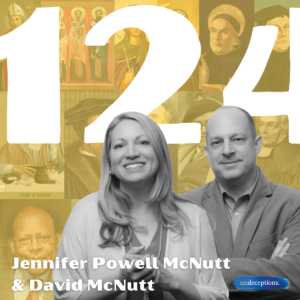Theology matters – even if there’s no God.
That’s the title of a John Dickson article, published by the ABC a decade ago (check it out here).
The piece is partially an obituary to the late, great German theologian Wolfhart Pannenberg, but also an “in defence of” piece, outlining why theology matters.
A common taunt by some intellectuals – chief among them famed atheists Richard Dawkins and Lawrence Krauss – is that theology is a waste of time, and hasn’t contributed anything good to recent society.
To say this is to fundamentally misunderstand what theology is – and its storied history.
The Oxford Dictionary defines theology as the “study of the nature of God” – but for many theologians, this is only a halfway point; understanding the nature of God is a gateway to understanding how to live.
“Theologians reflect that faith gives answers to the questions that we have – questions like ‘Who am I? Why do I matter? Why am I here? What’s the meaning of this?’”, said David McNutt, a theologian working and teaching at Wheaton College in Chicago.
“What each (theologian) does in their own way is point to Christ who alone can answer those questions for us.
“So, if we’re thinking about what it means to be human, or what our lives are going to look like, or what we want to do for work, or how to live a good family life … these are the kind of basic questions theologians help us with.”
This might sound a bit “insider baseball” for non-believers.
How could a theologian’s view of God possibly shape the life of a non-Christian?
According to history – quite a bit.
Many social and political reformers across the centuries pursued their work having come to their convictions through the process of “doing the theology”.
Perhaps the best recent example of this is the evangelical leaders of the 18th and 19th century abolitionist movement – spearheaded by William Wilberforce.
Their theological convictions – that all humankind was made in the image of God – led them to conclude that the dismantling of the trans-Atlantic slave trade – and the very practice of slavery itself – was not only against God but against the very moral fabric of all society.
It was a movement that had a huge impact on the secular world and was the nucleus of a fundamental shift in how human life was regarded.
Going back even further, fourth-century brother-sister combo Basil the Great and Macrina the Younger were instrumental in their care for the sick and the poor.
Macrina made it her life’s work to care for abandoned infants, while Basil was the brains and willpower behind the first public hospital.
Without their theologically-inspired work (alongside the efforts of their ‘Cappadociean Four’ colleagues Gregory of Nyssa and Gregory of Nazianus) the world would be a very different place.
Theology integrates human knowledge and Christian belief – and this is important, given that 2 billion people (roughly) around the world identify with the faith
“Practically no important field is untouched by the discipline of theology,” Dickson writes.
“How does brain science challenge the Western notion of the self? How was the Graeco-Roman notion of honour subverted by the New Testament emphasis on humility? How does time relate to eternity? What does quantum mechanics say about the notion of divine freedom, and vice-versa? Can innate human rights be grounded without a theistic framework? How does the biblical view of forgiveness contribute to modern attempts at reconciliation? All of these and more are proper theological topics.”
David’s colleague and wife Jennifer Powell McNutt – a well-respected academic and theologian in her own right – suggests that the values of secular, liberal Western democracies also have theological roots.
“I actually don’t think that we can talk about human rights and human dignity apart from valuing and appreciating what Christianity has contributed to that conversation about the Imago Dei and being made in the image of God,” she said.
“It gives humans a dignity that is fundamentally important to our entire world.”
Adapted by Alasdair Belling from the Undeceptions episode ‘The Theologians’. Listen to here


Want to be further undeceived?
Check out our network of podcasts and articles in the Undeceptions Library.











































